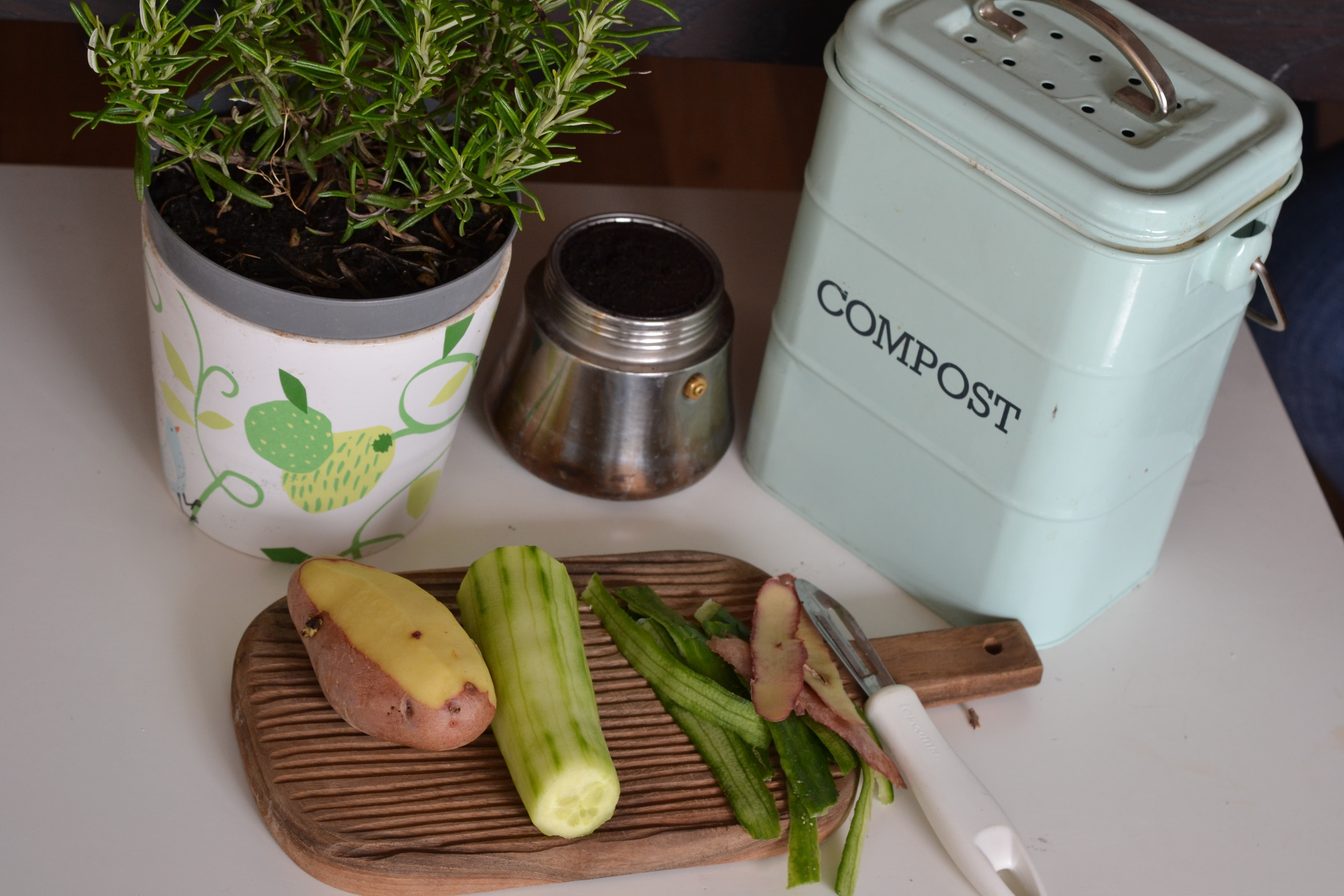
Thinking about living more sustainably, but aren’t sure where to start? Every step towards a greener tomorrow makes a difference. No matter how small a change in your lifestyle may seem, over time it can lead to big results.
Finding ways to reduce your plastic use is a great way to be more eco-friendly, and so is recycling! But here's a not-so-fun fact: Did you know that only 5% of recyclable plastic actually gets turned into new things?
Learn why recycling statistics are so abysmal, and how you can increase the chances of your recyclables actually getting recycled. Download our free Recycling Guide eBook.
Compost
- Composting has many benefits for both you and the earth. Anyone can compost with the right tools, even if you live in an apartment without outdoor space.
Here are some benefits of composting:
- Prevents organic waste material from going to landfills. A significant portion of landfilled waste ends up incinerated, which releases greenhouse gasses into the atmosphere. Composting reduces the amount of overall waste going to landfills, meaning less is incinerated and less pollution occurs. It also prevents landfills from becoming full.
- Compost creates nutrient-rich fertilizer that plants love, so if you’re a gardener, it will come in handy. It’s also the perfect substitute for chemical fertilizer.
What materials can you compost?
- Coffee grounds
- Fruit and vegetable scraps
- Eggshells
- Tea leaves
- Leaves and grass clippings
- Flowers and plant cuttings
- Newspapers (excluding glossy paper)
There are three different types of composting systems, and the type you choose will depend on the space you have available and how hands-on you want to be during the process.
If you live in an apartment without any outdoor space, or your outdoor space is small, first check to see if your city offers curbside composting pickup. If not, you can build or purchase an indoor composting bin.

Make eco-friendly changes to your home
You can modify your home in a couple of different ways to save electricity.
Use LED bulbs
It’s well-known that LED light bulbs are highly efficient. They can light up your whole room using less electricity than other types of bulbs. LEDs are also very long-lasting - they’re often rated for up to 50,000 hours of use. They typically will last at least 5 years, if not longer.
If you haven’t already, consider upgrading your light bulbs to LEDs.
Insulate your home
Another great way to save energy is to make sure your windows are insulated, so you can rely less on A/C in the summer and lose less heat in the winter.
Grabbing some weatherproofing strips can make all the difference.
Use reusable water bottles
We’re all aware of the impact that plastic water bottles have on the environment. If possible for you, consider switching to tap water, either straight from the faucet or run through a water filtration system like BRITA. This simple act could make a huge difference, and will also save you time and money since you won’t need to keep buying packs of water bottles.
Try meal planning to cut down on food waste
If you’re the type of person who goes to the grocery store without a list, or only a loose idea of what to buy, you may find yourself throwing out a bunch of moldy, unused produce a week later. Food waste is an issue both for the environment and your wallet.
Try meal planning - have a few go-to recipes, and before you go to the store, figure out exactly what you’re going to be cooking for the week. You could also try subscribing to a meal delivery service, and your ingredients will come pre-portioned.
Recycle
Last but certainly not least. It’s so important to recycle everything you possibly can, from plastic bottles to soda cans to cardboard.
Though we all tout recycling as a great way to save the planet, you also may have heard that only a small percentage of waste actually ends up being reused. But this doesn’t mean it’s pointless to recycle! The solution lies in knowing what to recycle, and being sure to rinse everything out before throwing it in the bin. Recycling facilities are overloaded with contaminated recyclables and non-recyclable materials, meaning more usable recyclables end up being diverted to landfills or incinerated.
If you want to make a difference, download our guide now using the button below.
Spread the word
Making eco-friendly choices is not just about what you do, but also your mindset, and the things you say to others. How often do you talk about your eco habits? Do you encourage your friends to be eco friendly as well? Is being kind to the planet on their minds? Sharing your ideas with your loved ones is a great way to promote change on a larger scale.
Grab our free recycling guide to kickstart your eco-friendly lifestyle.

